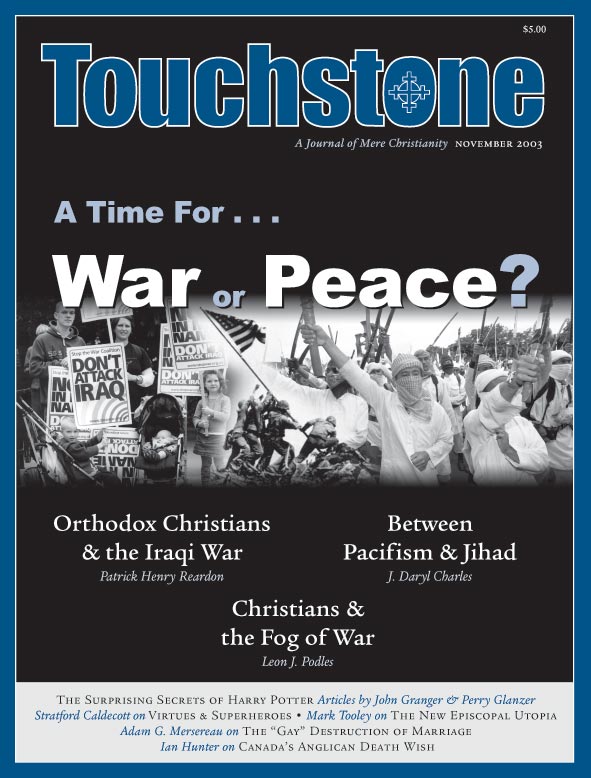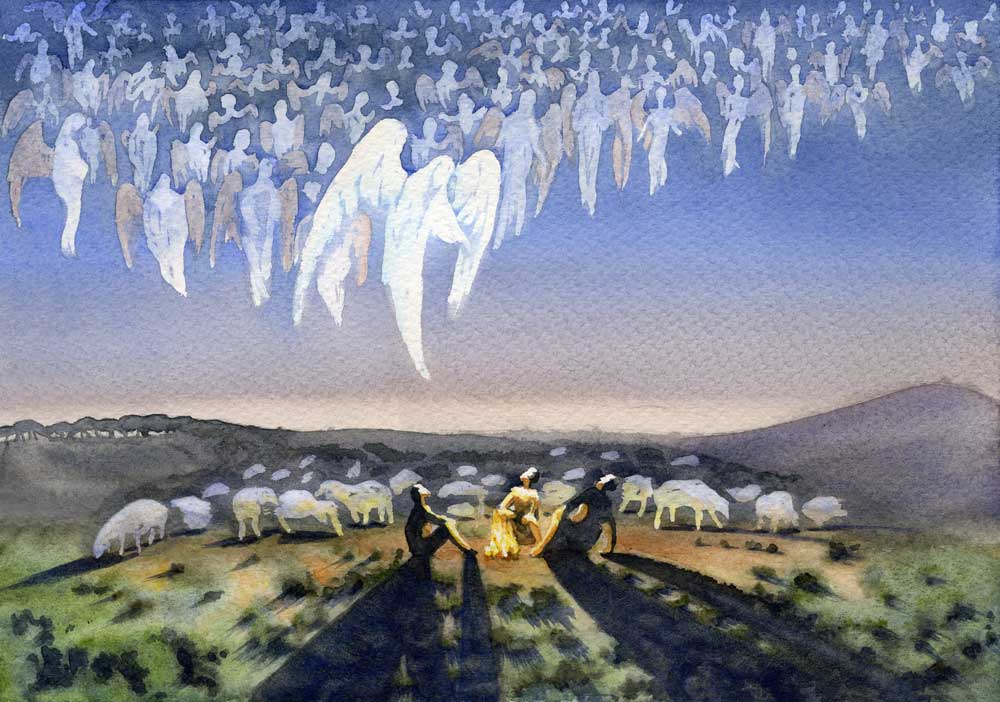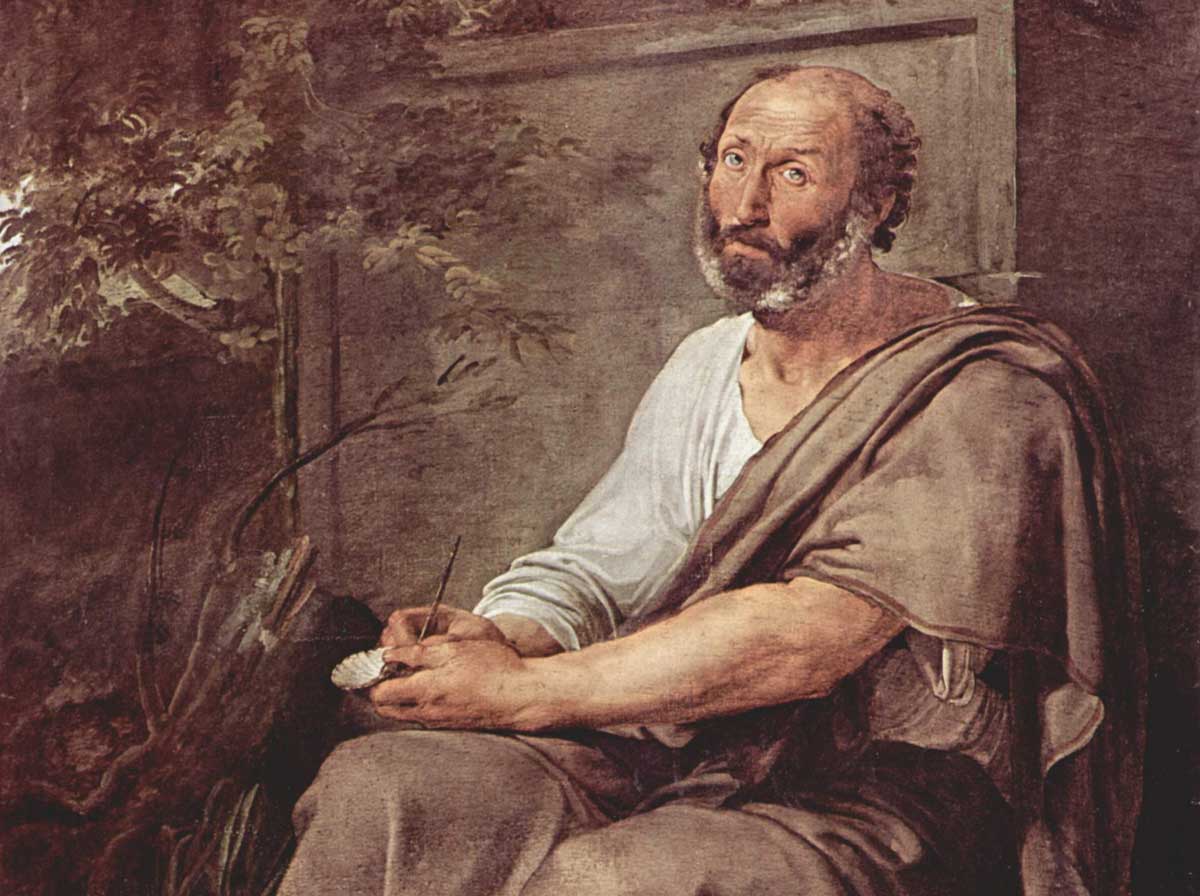View
Supermen & Virtues
Stratford Caldecott on the Appeal & Value of Superheroes
The modern comic-book store is no longer necessarily a place one would want to take one’s children, but in years gone by, constrained by the Comics Code Authority and the cultural norms of a less salacious age, Marvel and DC comic books were relatively wholesome fare. Admittedly, they were aimed at a readership made up predominantly of teenage boys, and on every second page or so there had to be some kind of punch-up to set the muscles rippling, but that convention aside, the stories were—by and large—moral tales.
The best of the comics were like modern fairy stories, or even a kind of tongue-in-cheek mythology. Jack Kirby invented a whole range of characters that possessed a dazzling archetypal purity and emblematic presence, from the Fantastic Four (representing the elements of earth, air, fire, and water) to the New Gods and the Forever People. His highly stylized drawings seemed to many of us to capture the pure energy of the human imagination. His explosions put you in touch with the fundamental forces of physics.
Other artists developed very different styles: The lean, sinuous lines of an anatomically precise Neal Adams drawing contrasted with the playful cartoonish strokes of Steve Ditko. (Of course, none of these Americans held a candle to our own Frank Hampson, who drew Dan Dare, but that’s another story!)
Searching for the latest work of my favorite artists from one newsstand to another, I began to see the world around me in a new way, my mind alternately highlighting the shadows, the colors, or the outlines of things in the graphic style of each artist. Over the intervening years, I have managed to hang onto examples of their best work, and every so often I dig out my collection and feast my eyes—though mostly I just like to know it is still there.
In the last two years Hollywood has been busy resurrecting some of the greatest comic characters in close to their original, wholesome form, thanks to the advances made in digital imaging. Film versions of Spider-Man, Daredevil, X-Men, and now the Hulk, to be followed by the Fantastic Four and probably the Silver Surfer, are absorbing tens of millions of dollars and making even more gigantic profits for everyone involved.
But what came as a pleasant surprise to many of us was the degree to which many of these movies reflect traditional morality. The filmmakers seem to have realized that to give a story the lasting mass appeal they are looking for, it needs to be not just about violence and wish-fulfilment but about the solution to an ethical dilemma, and that the most attractive heroes are just that: genuinely heroic, mastering their own selfishness, willing to sacrifice themselves for others, motivated by love. Pure sensationalism may get a few million people into the cinema, but it won’t get the same people to come back for three or four viewings of the same film, which is what pushes the box office through the roof.
God’s Agents
In Spider-Man, the plot turns on the hero’s moral development from someone who wants to exploit his new-found strength and agility to make money and impress his girlfriend, to someone who realizes that “with great power comes great responsibility,” someone who, at the end of the film, renounces physical love so as not to bring the girl he loves into danger. At the heart of the movie is a scene in which Aunt May prays the Our Father, and is dramatically interrupted by the Green Goblin at the words, “Deliver us from evil.” The meaning of the prayer springs to vivid life, and Spider-Man effectively becomes God’s agent in that deliverance.
In X-Men, one of the characters is a rosary-wielding Catholic mutant who relies on prayer rather than powers. In fact the movie is partly about the need for prayer, the preparedness to forgive one’s enemies despite persecution, and the willingness to give one’s life for one’s friends.
As for The Hulk, one of the most impressive films I have seen in the last few years, some of those who bought tickets expecting a shallow fantasy-action movie may have been disappointed, but who cares? One of the greatest living directors, Ang Lee (Crouching Tiger, Hidden Dragon; Ride with the Devil; and Sense and Sensibility), has captured the elusive appeal of the original comic, with its innocent, misunderstood monster, and developed it into a parable about the relationship between science and violence—and more precisely the link between violence against nature and the rebellion against God. Scientist Bruce Banner turns into the 10-foot-tall green Hulk when provoked to anger, but his anger is righteous, and he is hardly to blame for his father’s attempt to use the monster’s strength to help him escape from the limitations of mortality (“to go beyond God’s boundaries,” as the film puts it).
subscription options
Order
Print/Online Subscription

Get six issues (one year) of Touchstone PLUS full online access including pdf downloads for only $39.95. That's only $3.34 per month!
Order
Online Only
Subscription

Get a one-year full-access subscription to the Touchstone online archives for only $19.95. That's only $1.66 per month!
bulk subscriptions
Order Touchstone subscriptions in bulk and save $10 per sub! Each subscription includes 6 issues of Touchstone plus full online access to touchstonemag.com—including archives, videos, and pdf downloads of recent issues for only $29.95 each! Great for churches or study groups.
Transactions will be processed on a secure server.
more from the online archives

33.2—March/April 2020
Christian Pro-Family Governments?
Old & New Lessons from Europe by Allan C. Carlson
calling all readers
Please Donate
"There are magazines worth reading but few worth saving . . . Touchstone is just such a magazine."
—Alice von Hildebrand
"Here we do not concede one square millimeter of territory to falsehood, folly, contemporary sentimentality, or fashion. We speak the truth, and let God be our judge. . . . Touchstone is the one committedly Christian conservative journal."
—Anthony Esolen, Touchstone senior editor









